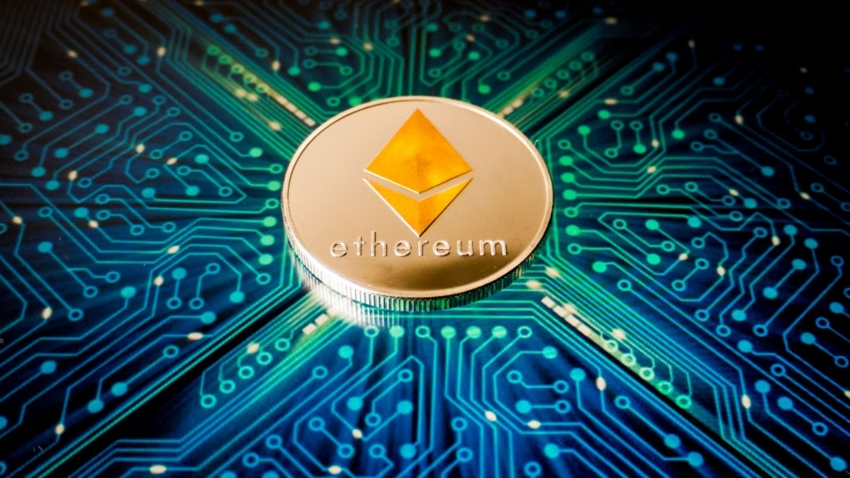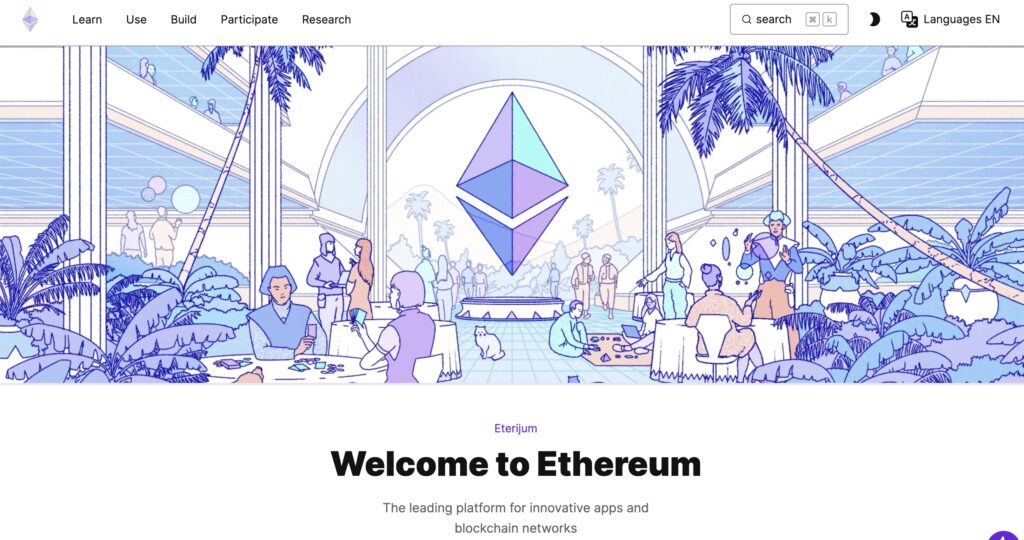
What is Ethereum?
Are you interested in knowing more about Ethereum? In this article, we will discuss what is Ethereum technology in detail.
Ethereum

Ethereum is a permissionless decentralized public blockchain network. A few quick facts about Ethereum are as follows:
- Like Bitcoin, Ethereum uses a decentralized “Peer-to-Peer” (P2P) network. Anyone can join this network. It also uses modern data encryption and consensus algorithms like Bitcoin.
- Vitalik Buterin was a co-creator of Ethereum. He is an expert in mathematics, computer programming, and economics. He is also a scholar and journalist.
- Buterin worked with several experts like Mihai Alise, Anthony Di Iorio, Charles Hoskinson, Dr. Gavin Woods, and Joseph Lublin. They worked for several years to develop the first version of Ethereum.
- They released a whitepaper in 2013, announced the arrival of Ethereum in 2014, and held a crowd sale of Ether (ETH), i.e., the cryptocurrency of Ethereum in 2014.
- The team launched the Ethereum platform in 2015, enabling developers to create “Decentralized apps” (DApps) using it.
- At the time of writing, CoinMarketCap reports that Ether is ranked second after Bitcoin in terms of market capitalization.
- Many experts consider Ethereum the most important blockchain project since its smart contracts, and DApps have many uses beyond simple currency transfer.
What is an Ethereum smart contract?
Ethereum smart contracts are pieces of code with the following characteristics:

Get a complimentary discovery call and a free ballpark estimate for your project
Trusted by 100x of startups and companies like
- Smart contracts are open-source; therefore, they are transparent.
- They contain "If-Then-Else" statements. Based on the fulfillment of predefined conditions, they automatically transfer cryptographic assets from one Ethereum address to another.
- Smart contracts are stored in the decentralized Ethereum blockchain; therefore, they are tamper-proof.
- Smart contract function execution results are stored in the Ethereum blockchain. This makes the outcome of their transaction execution transparent and irreversible.
- Developers typically code and execute smart contracts using the “Solidity” language for the Ethereum network. Some also code these using the “Vyper” language.
Read more about Ethereum smart contracts in “Smart contracts: the blockchain technology that will replace lawyers.”
What is EVM?
The Ethereum Virtual Machine (EVM) is the central component of the Ethereum blockchain that executes the code for all its decentralized applications. Read more about EVMS in “What is Ethereum?”.
EVM can execute code of varying complexity, i.e., the computational requirements of the algorithms can vary.
Computer science experts consider EVM a “Turing complete” computer. “Turing completeness” refers to a classification of computing systems. These systems have rules for processing and manipulating data. Read more about this in this article on “Turing completeness.”
What are Ethereum DApps?
Ethereum DApps are web apps with the following specific characteristics:
- The front end of a DApp can be in any programming language. However, the back end must consist of smart contracts.
- DApps are open-source, and they are autonomous.
- Ethereum DApps must run on the decentralized Ethereum network.
- A DApp must use cryptographic tokens created using a standard cryptographic algorithm.
- No single user can control a majority of these tokens.
- All changes to DApps must follow consensus within the user community.
- Ethereum DApps must store data on the Ethereum decentralized blockchain while following cryptographic standards.
Read more about Ethereum Dapps in “How to convert a web app into a DApp”.
Advantages and disadvantages of Ethereum
When we're talking about blockchain software development using the Ethereum network, we should say that this network follows the same basic principles of decentralization, immutability, and security standards that Bitcoin uses.
Hire expert developers for your next project
1,200 top developers
us since 2016
Additionally, it offers the following advantages:
- Developers can write smart contract code and DApps that execute on the Ethereum network. This has enabled many entrepreneurs to build new decentralized business applications.
The blockchain-crypto industry witnessed over 3,000 "Initial Coin Offerings" (ICOs) back in the 2017-18 period. 84.29% of these ICOs used the Ethereum platform.
Read more about these statistics in "ICO market reports: trends, capitalization, localization, industries, success rate.”
- The success of Ethereum resulted in many enterprises choosing to work with the Ethereum project team. Enterprises need solutions suited to their requirements.
They formed the “Enterprise Ethereum Alliance” (EEA) together, with the objective of helping enterprises adopt blockchain.
There are some Ethereum disadvantages, which are as follows:
- Scalability: While Ethereum provides robust decentralized security, the network doesn’t scale well enough to cater to its growing user base.
- Energy-hungry consensus algorithm: Like Bitcoin, Ethereum uses the energy-hungry “Proof of Work” (POW) consensus algorithm to validate Ethereum transactions.
Note: Ethereum will soon transition to the “Proof of Stake” (PoS) algorithm, which isn’t energy-hungry. This will also solve a great number of its scalability issues.
Read more about these algorithms in “Proof of work vs proof of stake comparison”.
Hire expert developers for your next project
Interested in Ethereum Development?
Given the popularity of Ethereum blockchain solutions, are you also planning to invest in an Ethereum solution? Despite its growing popularity, ethereum development requires a specific skill set, such as programming languages, frameworks, etc.
If you want to build a market-competitive Ethereum solution, we will advise you to partner with an expert software development company.
DevTeam.Space can help you with its expert blockchain developer community, which is experienced in building multiple blockchain applications. Write to us your initial Ethereum development requirements via this form, and one of our managers will get in touch with you to discuss further details.
Frequently Asked Questions
Ethereum 2.0 was launched in 2020. It is a blockchain platform that forms a peer-to-peer network between the nodes and executes smart codes for various blockchain solutions like brokerage services, decentralized finance, tracking an investment portfolio, etc. The Ethereum community is quite extensive, and it contributes to the development of the Ethereum classic technology.
Both bitcoin and ethereum are based on blockchain technology, however, bitcoin is just a digital currency, whereas, ethereum is a technology that is used to build new distributed ledger programs. Users use an Ethereum system by creating an Ethereum account like a bank account or investment account, for example, to buy Ethereum and pay transaction fees to validate transactions as in centralized platforms.
In order to use Ethereum to build decentralized applications, developers have to pay a transaction fee in ether, which is the native currency of the Ethereum blockchain network.


